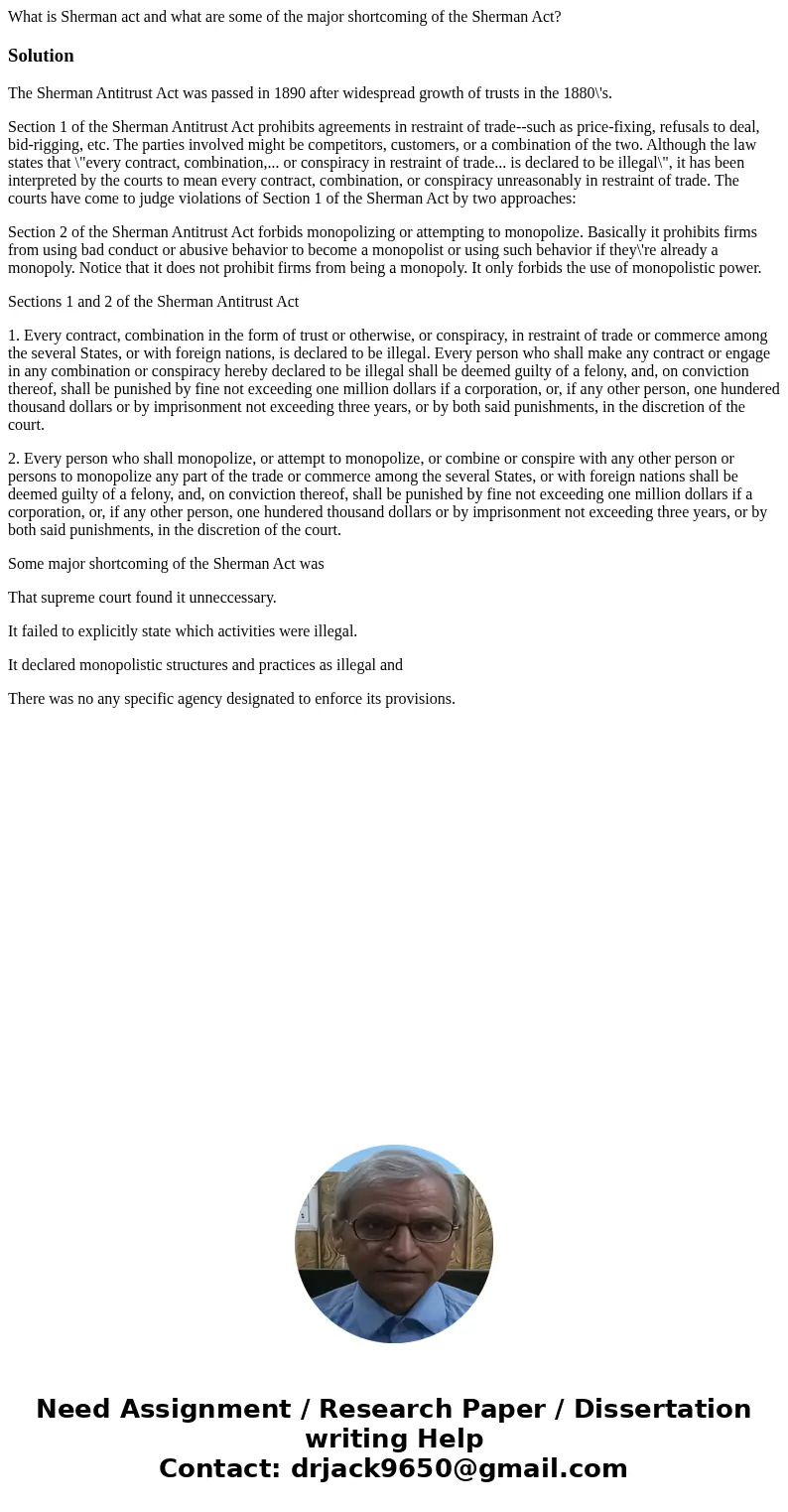What is Sherman act and what are some of the major shortcomi
What is Sherman act and what are some of the major shortcoming of the Sherman Act?
Solution
The Sherman Antitrust Act was passed in 1890 after widespread growth of trusts in the 1880\'s.
Section 1 of the Sherman Antitrust Act prohibits agreements in restraint of trade--such as price-fixing, refusals to deal, bid-rigging, etc. The parties involved might be competitors, customers, or a combination of the two. Although the law states that \"every contract, combination,... or conspiracy in restraint of trade... is declared to be illegal\", it has been interpreted by the courts to mean every contract, combination, or conspiracy unreasonably in restraint of trade. The courts have come to judge violations of Section 1 of the Sherman Act by two approaches:
Section 2 of the Sherman Antitrust Act forbids monopolizing or attempting to monopolize. Basically it prohibits firms from using bad conduct or abusive behavior to become a monopolist or using such behavior if they\'re already a monopoly. Notice that it does not prohibit firms from being a monopoly. It only forbids the use of monopolistic power.
Sections 1 and 2 of the Sherman Antitrust Act
1. Every contract, combination in the form of trust or otherwise, or conspiracy, in restraint of trade or commerce among the several States, or with foreign nations, is declared to be illegal. Every person who shall make any contract or engage in any combination or conspiracy hereby declared to be illegal shall be deemed guilty of a felony, and, on conviction thereof, shall be punished by fine not exceeding one million dollars if a corporation, or, if any other person, one hundered thousand dollars or by imprisonment not exceeding three years, or by both said punishments, in the discretion of the court.
2. Every person who shall monopolize, or attempt to monopolize, or combine or conspire with any other person or persons to monopolize any part of the trade or commerce among the several States, or with foreign nations shall be deemed guilty of a felony, and, on conviction thereof, shall be punished by fine not exceeding one million dollars if a corporation, or, if any other person, one hundered thousand dollars or by imprisonment not exceeding three years, or by both said punishments, in the discretion of the court.
Some major shortcoming of the Sherman Act was
That supreme court found it unneccessary.
It failed to explicitly state which activities were illegal.
It declared monopolistic structures and practices as illegal and
There was no any specific agency designated to enforce its provisions.

 Homework Sourse
Homework Sourse